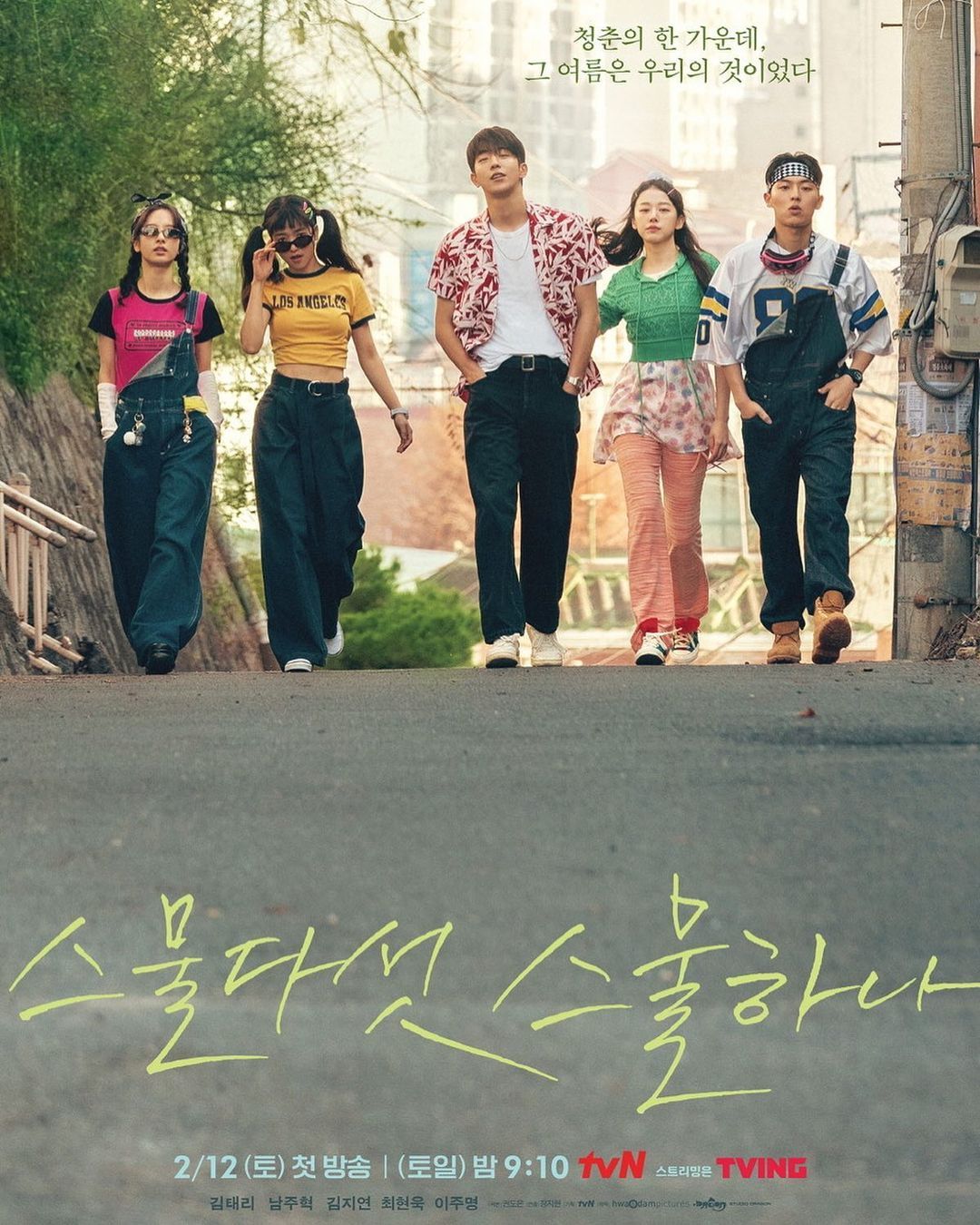[Watching Korean dramas and talking about Korea] "Twenty-Five, Twenty-One": Establishment of Social Order vs. Destruction of Fairness and Justice, Talking about Korean "Senior and Senior" Culture (Part 2)
Originating from the Japanese colonial period, the "senior and junior" culture with a strong military system color has been inherited from the authoritarian government period and has become an important foundation for the maintenance of Korean social order. But apart from the occasional condemnation by celebrities for not following the unspoken rules, this asymmetry of power, which is sometimes decided simply because of luck and no other reliable criteria, has also produced serious consequences such as bullying in Korean society.

With the gradual enlightenment of society, many people have begun to discuss the necessity of the culture of the predecessors, especially the more and more opportunities to contact Western culture. In some campuses, there are also calls for the predecessors to get along with each other as equals. Nonetheless, there is still a long way to go for the Korean society that values the order of elders and children.
Controversy between seniors and seniors in the Korean entertainment industry for grabbing the C position and not using honorifics
As a public figure, every move will be magnified and inspected. The Korean entertainment industry can be said to be the best window to observe the culture of predecessors and predecessors, and the most famous event in recent years may be the "C position" of the popular actor Ding Hae-in (정해인, 1988). event". In May 2018, Ding Haiyin won the Popularity Award at the 54th Baeksang Art Awards, but because he occupied the center position of the first row (commonly known as the C position) in the final group photo, instead of giving it to the same venue. The winners of the awards, such as the queen, the king, the queen and the best actor.
Although the live video was exposed later, some staff said that Ding Haiyin was only standing according to the instructions on the scene. He also apologized afterwards, saying that he was too nervous at the time and would pay more attention in the future, but the damage to his personal image has already been caused. In addition to criticizing him for being too greedy, there were also people who turned to the past when Kim Soo-hyun and Park Seo-joon took photos with their seniors and gave way to each other, or expressed a sincere and fearful attitude, to compare and criticize Ding Hae-in for not understanding the rules.
In addition, for example, Ji Min, a member of the girl group AOA, was criticized by netizens for being impolite on the show because he called Super Junior senior Kyuhyun Oppa (오빠), who made his debut earlier than himself, instead of the senior plus honorific title; Girls' Generation debut 10 On the anniversary, Hyoyeon wrote on IG "EXO is great, thank you for the only junior who came to greet you", implying that no one else expressed it; member of the girl group LABOUM was found in the live broadcast and was found to be older and more senior than himself. JIN, a member of BTS, not only did not use honorifics, but also called each other by their first names, which was criticized by netizens.

No matter how long Shen has been hidden, most of these controversies end with the parties' public apology, and some of them may become a big stain on their acting career, and they are labeled as "rude". But in addition to external pressure, the culture of seniors and seniors may also allow seniors who are at an advantage to bully in the name of "discipline". Compared with those who are criticized by public opinion, most of them are public figures. The victims of such bullying , more prevalent in all corners of Korean society.
The "MT" culture called communication becomes bullying
MT (엠티, Membership Training) is one of the important cultures of Korean universities. The same groups (faculties, clubs, etc.) conduct short-term group trips at the beginning of the new semester to enhance the friendship within the group and enable seniors to be more Meet new members. As a country with the highest per capita alcohol consumption in Asia, alcohol is an indispensable element in the process of MT, and various activities related to alcohol account for the largest proportion of MT. However, under the catalysis of the culture of the predecessors, these activities originally aimed at communication may become the beginning of the seniors and sisters in high positions, oppressing and dominating the younger brothers and sisters, the most common of which is the "drinking" culture.
In 2010, there was an incident in which a female college student died of alcohol drinking in Zengping County, North Chungcheong Province. After a police investigation, it was found that the deceased had been with her classmates the day before, and was called by the seniors to "establish the guidelines" and asked them to remember the name of the seniors correctly. , otherwise you must drink as punishment. Although he was not good at drinking, the deceased was drunk with more than 3 bottles of soju within half an hour, and his body was found in the room the next day. After the incident, the two seniors were convicted of causing death by negligence and sentenced to 1 year in prison and 2 years probation. Discussions about the case also attracted a lot of attention.
However, it is not so simple to change the drinking culture of Korean society. According to a poll in 2018, 1 in 3 Korean college students said they had been drunk. The most common occasion for drinking alcohol was the welcome party for freshmen (29.2%), MT was 22%, and then there was A "kinky dinner" with seniors. Extending to the workplace and going out to the society, another poll in 2018 also pointed out that up to 73% of office workers have been drunk after leaving the society, which is the same as when they were still in school (70.7%). Among them, nearly 40% said that the other party is usually a person with relatively high power such as a boss or a senior.
"We are young, it doesn't mean we are servants!"
In addition to drinking, the unspoken rules of "honorary" under the culture of the predecessors have also begun to trigger reflection and discussion on campus. As the name suggests, honorifics are mainly used to express respect to each other. The endings used are just like Japanese. The endings of honorifics usually make sentences longer. This is why some Korean dramas use “sentences are very short” to imply The other party spoke no big or small. However, at the same time, the use of honorifics and half-languages themselves also represents a certain class relationship. When one party uses honorifics and the other uses half-languages, it also symbolizes that the latter is in a high position of power.
Generally speaking, strangers should use "honorary language" with each other, unless it is after confirming the age, obviously older people can use half language, sometimes before using it, they will ask each other's opinions symbolically. However, as in the workplace and society, in Korean campuses, students in the lower grades are naturally forced to say "honor" to the senior students who are no more than one or two years older, which naturally forms a power relationship between the lower and the upper. Just talking, is it that serious? For opponents, these are the root causes of the "authorization of the upper grades". While making the lower grades "subordinates", they also seriously deprive them of their right to speak.
Reflecting on "Senior and Senior" Culture Flip Authoritarianism
Although not all seniors are bad, some people even strive to make juniors like them, and even conversely, some seniors are the targets of bullying by juniors, but it is undeniable that seniors who are purely based on age and luck It is not only foreigners who find it strange, but also many Koreans have begun to resist the culture of the younger generation.
대체왜내가느그들한테존대를써 (Why do I use honorifics to you?)
대체왜내가느그들한테존경을표해 (Why should I show respect to you?)
대체왜내가느그들바보소리를듣고있어 (Why on earth should I listen to your stupid words?)
늬들이먼저태어난게나하고뭔상관인데?
대체왜니가우리들한테반말을까
대체왜니가우리들한테충고를해 (Why on earth can you give us advice?)
대체왜우리들말을막고안웃긴소릴해
늬들이먼저태어난게나하고뭔상관인데?
—UMC (+) <Introduction to Senior Studies>
In a poll of young people in 2017, "solving authoritarianism (including age culture, military culture)" was only behind "solving excessively" among the "political issues that must be addressed" by 40%. The “competitive environment” (47%) ranks as the second most important issue, and the “predecessor culture” starting from middle school or even elementary school can be said to be the root of authoritarianism.
Although built on the concept of mutual benefit, the "culture of ancestors" has long since changed from the foundation of a stable society to an unspoken rule that harms fairness and justice. With the development of society and the increase of exchanges with European and American countries, although the proportion of seniors and juniors using honorifics and professional titles is gradually increasing in the workplace, and various bullying behaviors have also begun to appear relevant legal norms, but how to really implement and reverse , may also become an important issue for South Korea to move towards a fair society and get rid of the stigma of "hell".
Like my work? Don't forget to support and clap, let me know that you are with me on the road of creation. Keep this enthusiasm together!

- Author
- More